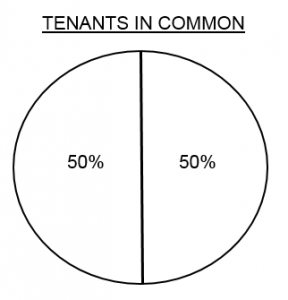
by Katrina Brown | Mar 23, 2020 | Powers of Attorney and Estate Planning, Succession Law
An Enduring Power of Attorney appoints an “Attorney” to act on your behalf in relation to the administration of your affairs at a time of your choosing, including following your incapacity.
Such appointment can be made in relation to both financial and personal/health matters. Should no such document exists upon your incapacity, there are various courses of action that can be taken in relation to the appointment of persons to act for you.
Personal and Health Matters
Pursuant to section 63 of the Powers of Attorney Act 1998 (Qld) (the Act), your spouse (if the relationship is close and continuing) is considered as the statutory health attorney, and can make any decision about the health matter that the Principal could lawfully make if they had capacity (in accordance with section 62 of the Act).
In the event your spouse is unable or unwilling to act, the Act provides alternate appointments and an application can be made to the Queensland Civil and Administrative Tribunal (QCAT) for recognition of same.
Financial Matters
QCAT can appoint a person to act as a Guardian for a person only if they are satisfied that the adult for whom the Guardian is appointed (the Principal) has impaired decision making capacity and that a decision maker is needed to ensure the Principal’s needs are met and protected.
Anyone who has a genuine and continuing interest in the welfare of the Principal can apply for appointment as the Guardian for such person. This power is not necessarily automatically given to your spouse.
Although there are provisions by which a health and finance attorney can be appointed to act on your behalf, this can be a lengthy and costly process and, in the event of your incapacity, can add additional stress to those persons already concerns for your welfare.
Further, a document specifically prepared by you which appoints your preferred Attorneys can provide additional instructions to such Attorneys (which instructions, if the Court were to make, would require additional processes and orders – some of which simply may not be possible). For example, in the event that you required your Attorney to deal with jointly held property or to make a nomination (binding or non-binding) to your superannuation trustee in relation to the payment of your member interests. As such terms can be important to the smooth and effective administration of your Estate, it is important to consider the drafting of a detailed Power of Attorney.
If you would like to discuss the drafting of your Enduring Power of Attorney, please contact Vicki on 07 5574 3560 or via email to info@nautiluslaw.com.au.

by Katrina Brown | Jan 17, 2019 | Staff
There are not many of us around – who actually love estate planning and commercial agreements…but we do, and we are looking for an exceptional team member to step into the shoes of one of our team who is moving overseas.
The Position:
The position is for a 1-3 PAE lawyer with experience in estate planning, estate administration, commercial structuring, tax, superannuation and/or property law. We offer an above market remuneration package which is based on experience and capacity. We proactively evolve packages according to lawyer output and professional growth.
About You:
We are ideally looking for a 1-3 PAE lawyer and pay mid-tier packages based on experience. We value degree work in tax, succession, business structures and other commercial courses as well as experience in IT and legal software.
If you are a newly admitted solicitor who has worked as an estate and/or commercial paralegal or legal secretary for at least 2 years – we want to hear from you! If you are currently a sole practitioner and overwhelmed, we welcome you to contact us; we were there once and know the value of a team to inspire.
About Us….We:
- Are a smallish team of dedicated professionals who each love our practice areas;
- Have an admin team however are organised, capable and self-managing;
- Have a flat management structure – and everyone gets in and just gets the work done;
- We love technology and try to simplify our day by creating systems and workflows;
- Have an HR manager who keeps us in check with “de-stressing” requirements because we are huge on work life balance;
- Discourage any engagement on the weekends as we believe we can be lawyers and have a life too;
- Work hard during the day when we are at work and leave at 5pm unless there is something urgent;
- Love to have team time and do out of office events whenever we can; and
- Love law and invest in technology to support our learning; CPD is only the start.
What now?
If you are looking for a career change in 2019, we want to hear from you. Your application should include:
1. Resume;
2. Transcripts from university studies;
3. A writing sample comprising of a letter of advice, research paper or similar non-precedent type document; and
4. A description of your ideal position with salary packaging.
Applications close on 31 January 2019. Please submit all materials to: recruitment@nautiluslaw.com.au or complete and submit using our online form below. For a confidential conversation, contact Office Manager Vicki Baker on 07 5574 3560. All applicants will be responded to.
by Katrina Brown | Jan 16, 2017 | Powers of Attorney and Estate Planning, Succession Law, Wills
You drafted a Will years ago – it’s pretty basic, but it gives everything to your spouse, or, if your spouse doesn’t survive, then everything goes to your children. So, if the content of the Will applies, what is the point of doing a new Will that sets out the same wishes?
Many people see the updating of a Will as an unnecessary and costly exercise, particularly when the new Will contains the same directions as the prior Will.
Although we certainly understand the frustration with the process, there are three important reasons to ensure your Will is reviewed and updated regularly.
Firstly – a regular review of your Will is critical
There have been recent cases in Queensland that indicate that if a challenge is made against the Estate of a deceased person, and the Estate is being administered by a Will that was not recently made or reviewed, the Courts often question whether the wishes of the deceased at their date of death were the same as those contained in the Will.
There is good reason for this. We regularly hear “I’ve been meaning to update my Will for months now, especially since this happened” – life is busy, and updating a Will falls a long way down the to-do list for most people.
However, it is important to make time for the review process – attending on your solicitor to review the Will, make any alterations, or confirm your wishes can clarify your intentions for the administration of your Estate and potentially prevent an Estate challenge. There is no defined review period, however we recommend reviewing your documents with your solicitor at least every three years.
Secondly – legislation and case law changes regularly – your documents need to change with it
Legislation and Case Law in each State is constantly evolving, meaning that the way your Will is interpreted or effected may change over time.
It is important to review, and confirm or vary, your Estate planning documents with your solicitor regularly to ensure that there are no material changes to your Estate plan that result from changes in law.
Finally – has your Will been voided or revoked?
While a regular review of your Estate planning documents is important, there are certain circumstances which will void your Will – therefore, review is critical should any such occasion occur.
Marriage, for example, will revoke a Will. Unless your Will is made in contemplation of your marriage to your partner, the act of marrying will invalidate the Will.
Similarly, divorce or annulment will also revoke your Will (unless a contrary intention is specifically indicated).
It is also important to review your Will as the circumstances of yourself, your executors or your beneficiaries change – if you, your executors or your beneficiaries become subject to bankruptcy or family law proceedings, it is important to review your Estate plan to ensure that it is still appropriate and, where necessary, that appropriate protective measures are set in place.
If you need to review your Estate plan, we welcome you to contact our Estate Planning Team on 07 5574 3560 or via email.

by Katrina Brown | May 26, 2016 | Conveyancing, Powers of Attorney and Estate Planning, Property Law, Succession Law
If you hold real property with another person, it is important to know whether you hold the property as joint tenants or as tenants in common.
What’s the difference?
A joint tenancy is where two (or more) people (or legal entities) own an asset jointly – that is 100% of the asset is held in ALL names. No one owner has a fixed interest in the asset. This is commonly the situation between spouses. When one owner of the asset dies, their death is recorded and the asset automatically transfers into the name of the surviving owner. A “jointly held” asset does not (except in some instances in New South Wales) pass to your estate – it passes to the survivor automatically.

Conversely, a tenancy in common is where two (or more) people (or legal entities) own an asset, but each person owns a specified share. This situation is common in business dealings and in dealings where parties wish to own distinct interests in an asset. The below diagram shows a “tenancy in common” between a husband and wife, with the husband owning 50% of the asset, and the wife owning 50% of the asset. On the death of one of the spouses, their share passes to their estate and is distributed in accordance with their Will. The share does not pass automatically to the surviving spouse.

There are benefits and downsides to each type of holding; accordingly, owners need to be aware of the consequences of each option – to ensure suitability.
What happens if I want to change the way the asset is held?
If you hold an asset as joint tenants, and wish to sever the tenancy, or if you hold the property as tenants in common in equal shares and want to become joint tenants, it is possible to change the way the property is held. These transactions are commonly effected for estate planning or family law purposes.
This change is effected by way of a form signed by one or both property owners, which is then stamped and registered with the Titles Registry as a change of tenure transaction. In some circumstances, there is a transfer duty exemption which can apply.
If you wish to discuss changing the tenure on your property, please contact our office on 07 5574 3560.
by Katrina Brown | May 26, 2016 | SMSF, Tax Advisory, Tax Advisory
Answer: Maybe, maybe not.
This question asks whether an employee is a related party of their employer (or the employer a related party of the employee’s SMSF) for purposes of Section 71 Superannuation Industry (Supervision) Act 1993 (SISA), in respect to the In-House Asset Test and Section 66 of the SISA, in respect to the prohibition against acquiring certain assets (including residential property) from a related party.
There is no default rule that an employee is an associate of their employer. The analysis does not, however, end at that fact.
A related party of another is defined at section 10(1) of the SISA as a member, a standard employer sponsor of the Fund, or a Part 8 Associate of either the member or the standard employer sponsor of the Fund.
Assuming the employee’s SMSF is not an employer sponsored fund, the question is whether the employer may nonetheless be a Part 8 Associate of the employee.
A Part 8 Associate is defined at section 70B of the SISA as a relative of an entity (if the employee is unrelated to the employer, no problem), a partner of the entity (if the employee is not a partner – then not a problem), a trustee of a trust for which the entity is “controlled” (if the employee has no influence over the trust, receives no income or capital, etc. – then not a problem), or if the employee has a “sufficient influence” or “majority voting interest” in the entity (this could be the area in which the test is relevant, because as an employee she may have significant influence over the conduct of the entity), or another Part 8 Associate of the employee has this influence (for example, a family member controls the employer or a related entity of the employer).
In respect to the question of “sufficient influence”, we consider section 70E of the SISA, and note that it may be the case that the employee has considerable conduct in the employer’s affairs.
For example, the employee may, for a property developer, determine the properties to be acquired and/or developed, and be charged with the derivation of investors and the profit sharing relationships. The employee may also, in such circumstances, receive a bonus on the development projects. The directors may rely on the employee to provide recommendations across the business. In this case, the employee may likely have “sufficient influence” to be a related entity to his employer. Similarly, if the employee received, as a consequence of employment, the right to demand an asset as compensation for the services to the employer, this may be “sufficient influence” to be a related party.
On the other hand, if the employer is a property developer, and the employee is a secretary with float tasks over administration matters, it is quite likely the employee has little or no influence over her employer.
The circumstances in which section 70E may apply in an employee/employer relationship are complicated and should be considered on the facts and circumstances (consider for example the relationship between employer and employee for purposes of the Fringe Benefits Tax Assessment Act 1986 (Cth)).
Provided the employee is not a Part 8 Associate (nor a related party of the employee) to the employer, then the employee may acquire assets of the employer at arm’s length and commercial terms (subject to satisfying at all times section 62 of the SISA, being the Sole Purpose Test), without restriction under the test of section 66 (restricting acquisitions of assets from members and their related parties), and section 71 (In-House Asset Test) would not apply if the asset was acquired.
Notwithstanding the above, any transaction must be compliant with section 109, with every stage of the acquisition, including any vendor finance arrangements, made on arm’s length and commercial terms. Whilst sections 67 and 67A do not prevent an employer from lending money to an employee (subject to any restrictions posed by Division 7A of the Income Tax Assessment Act 1997), the finance arrangements (limited recourse borrowing arrangements) must be such that the vendor (employer) does not retain title over the asset pending settlement of the borrowing.
If you have any queries regarding the subject of this article, please do not hesitate to contact Katrina Brown via email or on 07 5574 3560.









